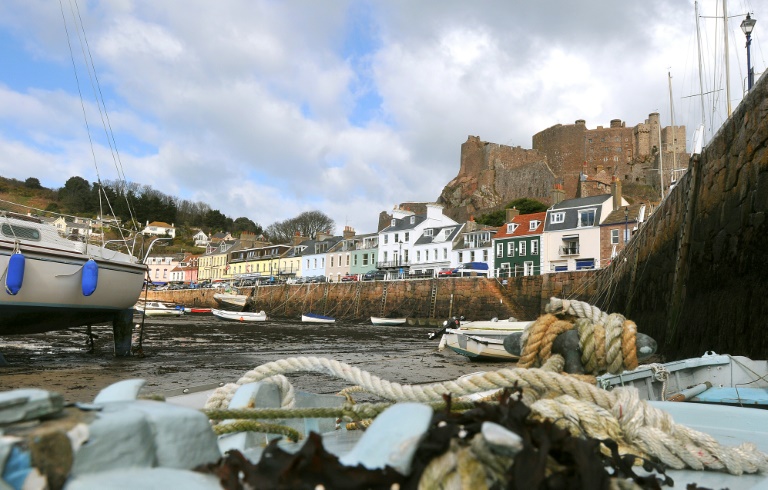Octogenarian Francois Le Maistre is one of the last native speakers of Jerriais, the ancient language of Jersey, the largest Channel island which is just minutes from the French coast.
“We’re the last generation to speak it naturally,” the 84-year-old told AFP. “It’s so sad when you lose the very essence of your culture.”
Lying just 14 miles (22 kilometres) from the French coast, Jersey is a self-governing British Crown Dependency, represented internationally by the UK government in London.
Due to the dominance of English, a dwindling number of people speak the French-influenced local language.
Jerriais — also called Jersey French — has existed for more than 1,000 years and traces its origins to nearby Normandy in northern France.
Sitting with his 77-year-old brother Jean in the small village of Saint Ouen, Le Maistre recalled that as children “we spoke nothing else at home”.
But Jerriais was “considered a peasant language”, and teachers would even punish children for using it, Jean said.
Now the brothers mainly use English, like most of Jersey’s 100,000 residents, reflecting its transformation since World War II from a rural community to a tourism destination and offshore tax haven.
The same has happened for the similar but distinct language spoken on the nearby island of Guernsey — Guernesiais.
Today attitudes are changing, with efforts to preserve and revive languages gaining traction in many parts of the world.
In 2019, Jersey declared Jerriais one of its official languages alongside English and French, and the government supports teaching it in schools.
Enthusiasts hope Jersey will follow the example of another British Crown Dependency, the Isle of Man in the Irish Sea, which has revived its moribund local language Manx.
Celtic in origin like Welsh, Irish, Scots Gaelic and Breton, Manx was declared extinct in 1974, but it has since made a comeback and is now studied in schools.
“With heavy investment, a lot of time and effort, they have revitalised it… so we’re hopeful,” said Susan Parker, one of Jersey’s seven teachers of Jerriais.
At the same time she cautioned that Manx’s revival took 40 years, “so it’s a long path”.
– ‘Keep heritage alive’ –
Giving a class at Beaulieu Convent School, a private Catholic school in Jersey’s capital of Saint Helier, she chats to seven-year-olds in Jerriais.
“Comment qu’tu’es?” (How are you?)
The children shoot their hands up, eyes glowing.
“J’sis d’charme” (I’m well) or “J’sis magnifique” (I’m great), they answer.
Later they put on traditional checked aprons and headscarves and learn a folk dance, before watching a teacher in costume perform a dramatic reading of a story in Jerriais.
Schools in Jersey began integrating Jerriais into their curriculums last year, and teachers are trying to teach children about their cultural heritage, even if they are unlikely to speak the language at home.
“It’s kind of getting to the stage where the number of native speakers is below 800, and that’s critically endangered… so we’re working really, really hard to revitalise it,” Parker says.
In the most recent survey in 2012, less than one percent of the population said they spoke Jerriais fluently while 27 percent said they knew some words or phrases.
“We lose speakers among the elderly people faster than we gain among the young people,” warned linguist and teacher Geraint Jennings, the charity Jersey Heritage’s Jerriais promotion officer.
Yet the language is sparking interest among some young Jersey residents, such as Atticus Mawby, a 21-year-old student.
“If Jerriais does die, then Jersey would become just another part of Britain and that would be incredibly sad,” he says.
“I think this is really our best shot at keeping Jersey’s independent heritage alive”.
To improve his knowledge, Mawby has enrolled in conversation workshops that Jennings leads five times a week.
– Logos and social media –
On Mondays these are held in a free co-working area of Santander Bank in Saint Helier, where Jennings encourages the local business community to get involved.
The idea is to make people feel that they “want Jerriais on my products or in my shop” or to have a bilingual logo and branding, he says.
For now though, French is much more seen and heard, since it was the language of legislation for many years.
And currently the only media in Jerriais is a five-minute broadcast once a week on BBC radio.
“It would help to have films, it would help to have cinema and those sort of things,” said Mawby, taking part in a conversation group in Jersey Museum’s cafe, with participants ranging in age from 20 to 80.
Some are learning numbers by throwing dice while others are conversing with varying levels of fluency.
To get younger people speaking Jerriais, “social media is the way to go”, Jennings stressed.
They “want things on demand — ‘How do you say that?’ — and they can just look it up on the internet and find a sound clip or a video clip.”
This presents a fresh challenge: how to update the traditional language with words of the modern era.










